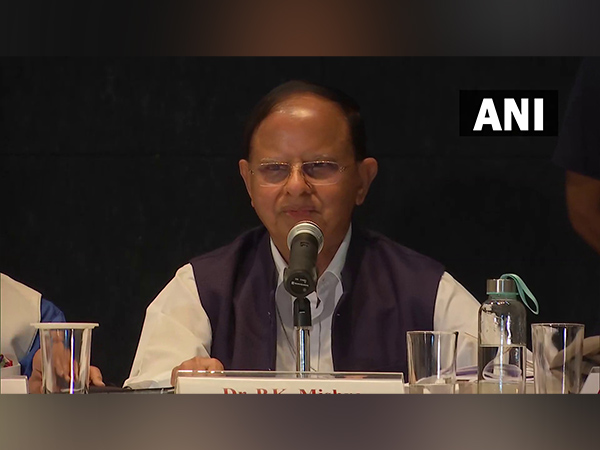New Delhi [India], June 7 (ANI): Principal Secretary to the Prime Minister, PK Mishra, has emphasised the urgent need to address extreme heat as a global crisis, echoing the call from the UN Secretary-General. Delivering the keynote address during the Special Session on Extreme Heat Risk Governance at Geneva on Friday, he underlined that rising temperatures pose a systemic risk to public health, economic stability, and ecological resilience, according to a PMO statement.
India welcomes the UNDRR’s initiative to advance the Common Framework for Extreme Heat Risk Governance as a platform for shared learning, guidance, and collaboration.
Mishra emphasised that under the leadership of Prime Minister Shri Narendra Modi, India has taken a proactive and forward-thinking approach to extreme heat risk management. He pointed out that India has moved beyond disaster response toward integrated preparedness and mitigation strategies.
Since 2016, the National Disaster Management Authority (NDMA) has developed comprehensive national guidelines on heatwave management, revised in 2019, which laid the foundation for decentralised Heat Action Plans (HAPs). He acknowledged the pioneering Ahmedabad Heat Action Plan, which demonstrated how early warnings, inter-agency coordination, and community outreach can save lives.
“Over 250 cities and districts across 23 heat-prone states have operational Heat Action Plans, supported by NDMA’s advisory, technical, and institutional mechanisms”, stressed the Principal Secretary, underscoring that strengthened surveillance, hospital readiness, and awareness campaigns have significantly reduced heatwave-related mortality.
Mishra highlighted that India’s approach is whole-of-government and whole-of-society, engaging ministries from health, agriculture, urban development, labour, power, water, education, and infrastructure. He noted that public health institutes, research groups, civil society organisations, and universities are playing a crucial role in supporting local governments in improving heat action plans.
“Extreme heat deeply impacts communities, and India has actively incorporated traditional wisdom and local experiences into its response”, stressed Dr Mishra. He noted that schools have become catalysts for behavioural change, educating children about climate resilience. He also emphasised that hospitals and primary health centres must be strengthened to ensure swift and effective emergency responses.
Outlining India’s transition from a preparedness-only approach to long-term heatwave mitigation, including cool roof technologies, passive cooling centres, urban greening, and the revival of traditional water bodies, Shri Mishra affirmed that India is integrating Urban Heat Island (UHI) assessments into city planning.
Mishra announced a major policy shift, stating that National and State Disaster Mitigation Funds (SDMF) can now be used for heatwave mitigation. This allows local governments, private sector entities, NGOs, and individuals to co-finance prevention and mitigation projects, fostering shared responsibility.
Mishra acknowledged key challenges that remain and called for a global focus on developing a localized heat-humidity index based on real-time data to enhance early warning systems, advancing affordable and culturally appropriate building technologies and passive cooling innovations, and addressing equity concerns, as extreme heat disproportionately affects women, outdoor workers, the elderly, and children.
“Heatwaves are transboundary and systemic risks, particularly for densely populated urban areas”, stressed Dr Mishra, urging the international community to enhance technological collaboration, data sharing, and joint research on heat resilience. He called for the Common Framework to provide accessible knowledge, research, and practical solutions, alongside institutional and financial support mechanisms.
As per the statement, Mishra affirmed India’s full commitment to sharing its expertise, technical capacities, and institutional strengths with global partners, ensuring a resilient, coordinated, and proactive global response to extreme heat.(ANI)
Disclaimer: This story is auto-generated from a syndicated feed of ANI; only the image & headline may have been reworked by News Services Division of World News Network Inc Ltd and Palghar News and Pune News and World News
HINDI, MARATHI, GUJARATI, TAMIL, TELUGU, BENGALI, KANNADA, ORIYA, PUNJABI, URDU, MALAYALAM
For more details and packages














